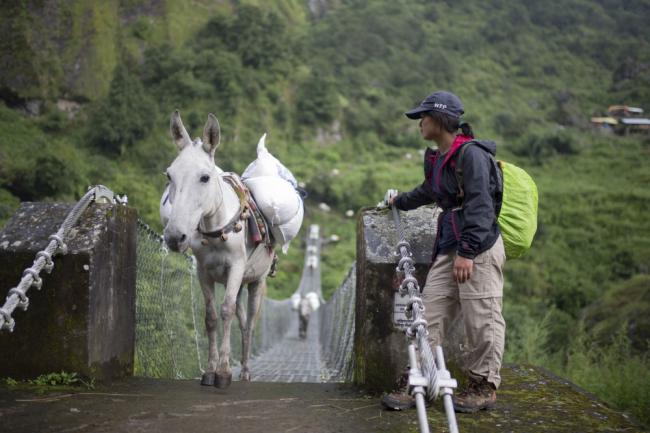
Border blockade on imports sends food and fuel prices skyrocketing in Nepal: UN
“If trade remains restricted and food prices continue to rise, a serious humanitarian crisis will be hard to avoid,” said David Kaatrud, WFP Regional Director for Asia and the Pacific in a news release.
According to WFP, the border blockage that began in September to protest Nepal’s new constitution has already slowed trade, causing a food and fuel shortage since the last three months.
“People are struggling to feed their families as the cost of food rises beyond their grasp. Coming so soon after the recent earthquake, this crisis could severely test people’s ability to cope, and may lead to an increase in malnutrition,” said Mr. Kaatrud.
According to WFP, Nepal is heavily dependent on imports, especially from India and the border disruptions have led to the cost of some basic food staples, such as cooking oil, rice, lentils, sugar and salt to soar in recent weeks as supplies dwindled.
The UN agency said that the average price of lentils, pulses and cooking oil have increased by more than 30 percent since August and more than 50 percent since last year and in remote areas, including parts of the country worst hit by the 25 April earthquake and aftershocks, the price of food commodities has increased even further, doubling in some cases.
In Gorkha, a community close to the earthquake epicentre, a 25 kg sack of rice now costs 5,000 Nepali Rupees ($46.80) – up from 2,500 Rupees ($23.40) before the blockade and the price of cooking oil and sugar has also doubled in the town, said WFP.
Additionally, WFP said that the price of fuel also increased across the country, with the cost of refilling a cylinder of cooking gas costing from 1,500 Nepali rupees ($14.00) before the blockade to between 8,000 and 11,000 rupees ($75 and $102) today, an increase of as much as 630 per cent.
At the same time, the UN agency noted that a quarter of people in Nepal on less than $1.25 a day, and on average spend 60 percent of their income on food, which means that most have only a limited capacity to cope with shocks such as disasters and soaring food prices.
“WFP urges all sides to once again allow the free flow of food items across the border to ensure that Nepalis, especially those who struggle on a day-to-day basis to feed their families, are not the ones who bear the burden of this protracted political stand-off,” said Kaatrud.
Moreover, WFP warned that the fuel shortage caused by the border blockages was hampering earthquake relief efforts and that there have been severe delays in WFP efforts to provide food assistance to more than 224,000 earthquake-affected people.
The agency said that it could only deliver one-third of food supplies earmarked for distribution by the end of the year and added that the delivery of non-food items, such as medicine and shelter material for winter, has also been severely affected by the dispute.
Earlier this week, UN agencies in a joint statement warned that the “health and humanitarian implications of the present scenario are grave” in Nepal and urged all sides to ease an effective blockade of the country’s southern border.
Photo: WFP/ Tina Stacey/www.justearthnews.com
Support Our Journalism
We cannot do without you.. your contribution supports unbiased journalism
IBNS is not driven by any ism- not wokeism, not racism, not skewed secularism, not hyper right-wing or left liberal ideals, nor by any hardline religious beliefs or hyper nationalism. We want to serve you good old objective news, as they are. We do not judge or preach. We let people decide for themselves. We only try to present factual and well-sourced news.







